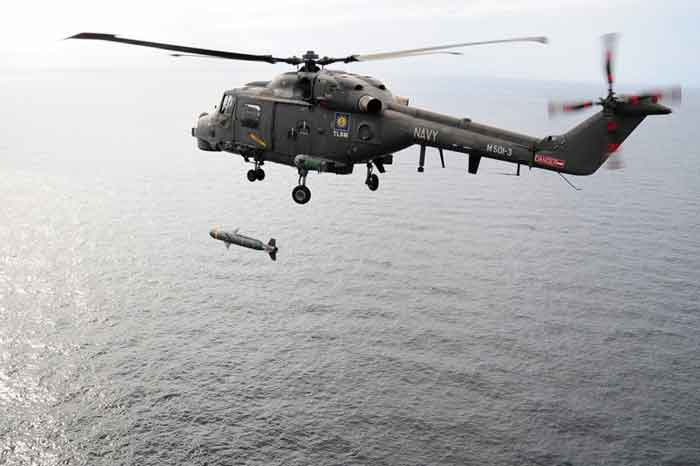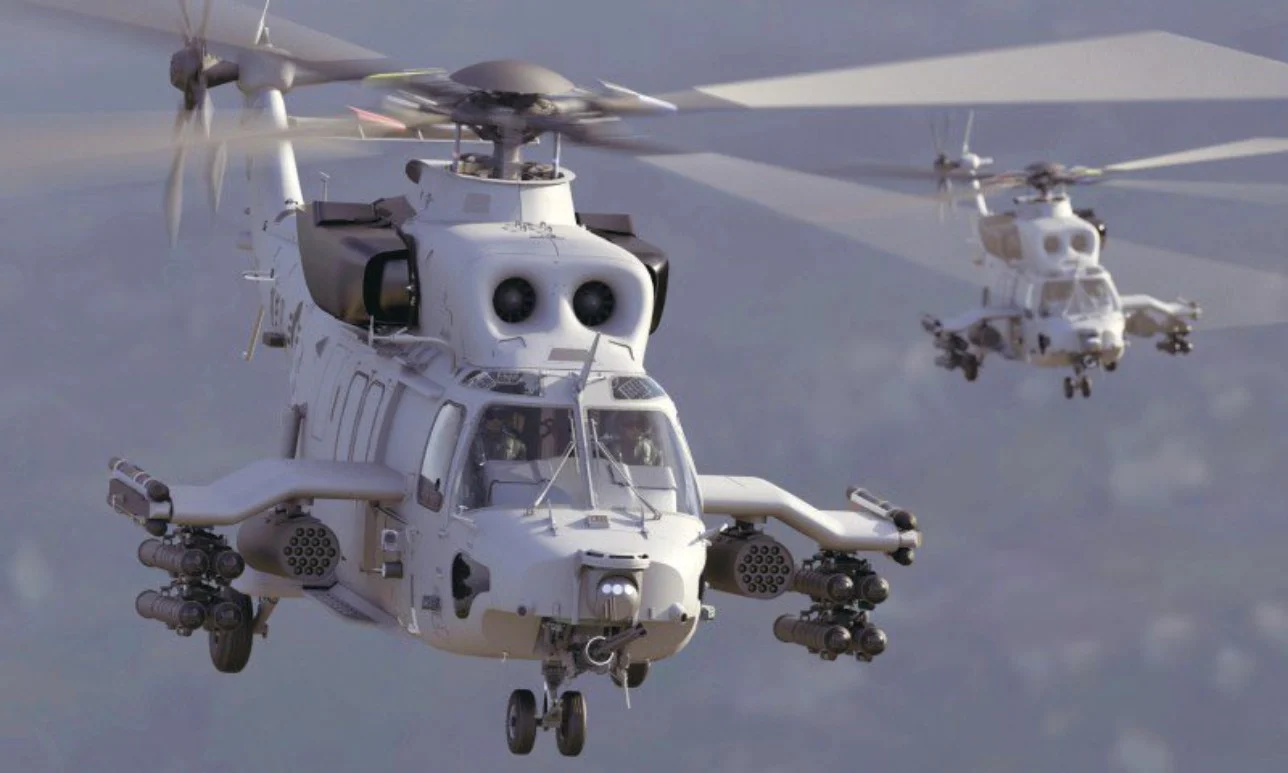RMN Reportedly Issues RFP for Six ASW Helicopters to Replace Super Lynx Fleet
The Request For Proposal (RFP) for six Anti-Submarine Warfare (ASW) helicopters marks the initial step in a program to replace the six Super Lynx Mk300 helicopters currently operated by the Royal Malaysian Navy (RMN). (only four of the Super Lynx helicopters remain operational)
(DEFENCE SECURITY ASIA) – Industry sources have informed Defence Security Asia that the Royal Malaysian Navy (RMN) has issued a Request For Proposal (RFP) for the procurement of six Anti-Submarine Warfare (ASW) helicopters.
This RFP marks the initial step in replacing the six Super Lynx Mk300 helicopters currently in service with the RMN.
As previously reported, the RMN has long intended to replace the six Super Lynx Mk300 helicopters, which have been in service since 2003 and are now 21 years old.
Of the six Super Lynx Mk300 helicopters acquired from Augusta Westland (formerly known as GKN Westland Helicopter), only four are currently operational within the RMN.
“RMN is currently operating four out of the six helicopters for maritime role operations to support fleet operations and training needs,” said RMN Chief Admiral Tan Sri Abdul Rahman Ayob in an interview with a local newspaper in April last year.
He also confirmed that the Super Lynx Mk300 helicopters will be replaced.

The RMN Chief mentioned the possibility of leasing new helicopters when the Super Lynx Mk300s are gradually phased out.
The naval variant of these helicopters is a versatile platform for anti-surface warfare, anti-submarine warfare, search and rescue, and various other operations.
Globally, a total of 200 Super Lynx helicopters are in service with 11 navies and have been involved in several conflicts worldwide, including Operation Iraqi Freedom in 2003.
The Super Lynx helicopters can be equipped with a variety of weapon systems, including four “Sea Skua” missiles for medium to long-range surface threat neutralization, as utilized by the RMN.
Additionally, the Super Lynx can be fitted with depth charges and torpedoes for anti-submarine warfare missions.
Among the potential candidates to replace the RMN’s Super Lynx helicopters is the AW159 “Wildcat,” developed by Leonardo.

The AW159 Wildcat is a capable, modern, and agile helicopter designed for anti-submarine and anti-surface warfare missions.
It can also perform Intelligence, Surveillance, Target Acquisition and Reconnaissance (ISTAR), maritime interception, and other operations.
The AW159 Wildcat has already been selected by the South Korean and Philippine navies.
In addition to the AW159 Wildcat, South Korea’s Korea Aerospace Industries (KAI) has expressed strong interest in participating in the RMN’s Super Lynx Mk300 replacement program
. Industry sources told Defence Security Asia that KAI would “enter the fray” if the Ministry of Defence opens a tender for the acquisition of suitable helicopters to replace the RMN’s Super Lynx.
Defence Security Asia understands that KAI is likely to propose the “Marineon” MOH (Marine Operation Helicopter), a naval variant of the “Surion” helicopter developed by the company and widely used by the branches of the South Korean Armed Forces.

The “Marineon”/”Surion” helicopter was developed by KAI, incorporating technological advantages gained from the operation of American and European helicopters, alongside using existing platforms and systems available in the market.
The “Marineon” MOH configuration proposed by KAI to meet RMN’s requirements is the “Marine Operation Helicopter” (MOH), with technical specifications to be determined later by RMN and KAI.
The MOH “Marineon” configuration is deemed more suitable to fulfill the RMN’s needs.
Essentially, the “Marineon” MOH helicopter can be equipped with air-to-ground missiles, air-to-air missiles, torpedoes, Gatling guns, heavy machine guns, and more. For sensors, the helicopter can be fitted with Sonarbuoy, Electronic Support Measures (ESM), Forward Looking Infra Red (FLIR), Search Radar, and other systems.
For Anti-Submarine Warfare (ASW) purposes, the “Marineon” MOH can be equipped with a “dipping sonar” to detect enemy submarines. – DSA



Comments are closed.